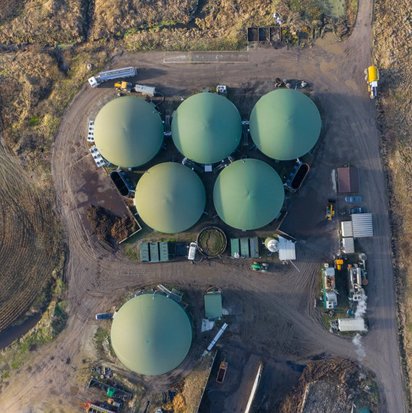Periodic inspection of biogas plants


A biogas plant is considered hazardous under the German Ordinance on Industrial Safety and Health. This means that biogas plants count as potentially explosive areas together with pressure equipment.
The German Ordinance on Industrial Safety and Health is the legal basis for carrying out the periodic inspections of a plant that requires monitoring. This helps the operator provide a safe working environment for his employees and third parties, avoiding potential risks. Installations requiring regular inspection must be periodically inspected for compliance with safety standards. The periodic inspection of plants in potentially explosive areas (§ 16 BetrSichV) must take place at intervals of not more than three years.
TÜV NORD provides experienced experts to support the operator in carrying out his duties.
We inspect
To guarantee the complete safety of the plant and the environment, biogas plants must be designed and operated such that water-polluting substances can not escape. This means that amongst other measures, leakage detection is required on tanks and pipes. In biogas plants, fuel oil, diesel, lubricating oil / waste oil, liquid manure, slurry, silage effluent and to some extrent substrates are designated as water-polluting substances. TÜV NORD guarantees the highest safety standards and, in accordance with the Ordinance, inspects the plant for the handling of water-polluting substances (VAwS), including the premises, substrate containers, piping, lubricating oil, waste oil and silage storage.
Depending on the following circumstances, very different framework conditions and obligations may arise for the operator, in particular with regard to the time limits of the periodic inspection requirement: